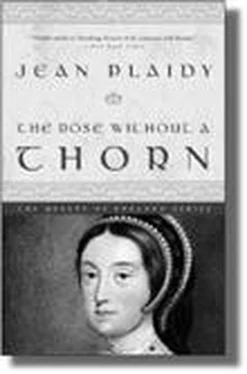Jean Plaidy - Mary, Queen of France - The Story of the Youngest Sister of Henry VIII
Здесь есть возможность читать онлайн «Jean Plaidy - Mary, Queen of France - The Story of the Youngest Sister of Henry VIII» весь текст электронной книги совершенно бесплатно (целиком полную версию без сокращений). В некоторых случаях можно слушать аудио, скачать через торрент в формате fb2 и присутствует краткое содержание. Жанр: Старинная литература, на русском языке. Описание произведения, (предисловие) а так же отзывы посетителей доступны на портале библиотеки ЛибКат.
- Название:Mary, Queen of France: The Story of the Youngest Sister of Henry VIII
- Автор:
- Жанр:
- Год:неизвестен
- ISBN:нет данных
- Рейтинг книги:4 / 5. Голосов: 1
-
Избранное:Добавить в избранное
- Отзывы:
-
Ваша оценка:
- 80
- 1
- 2
- 3
- 4
- 5
Mary, Queen of France: The Story of the Youngest Sister of Henry VIII: краткое содержание, описание и аннотация
Предлагаем к чтению аннотацию, описание, краткое содержание или предисловие (зависит от того, что написал сам автор книги «Mary, Queen of France: The Story of the Youngest Sister of Henry VIII»). Если вы не нашли необходимую информацию о книге — напишите в комментариях, мы постараемся отыскать её.
Mary, Queen of France: The Story of the Youngest Sister of Henry VIII — читать онлайн бесплатно полную книгу (весь текст) целиком
Ниже представлен текст книги, разбитый по страницам. Система сохранения места последней прочитанной страницы, позволяет с удобством читать онлайн бесплатно книгу «Mary, Queen of France: The Story of the Youngest Sister of Henry VIII», без необходимости каждый раз заново искать на чём Вы остановились. Поставьте закладку, и сможете в любой момент перейти на страницу, на которой закончили чтение.
Интервал:
Закладка:
May she find happiness in her husband as I have found it in mine, prayed Mary.

Danger at the King’s Court
THE YEARS WERE PASSING and the love between Mary and her husband was strengthened. She had always believed that theirs would be an ideal marriage; he had been too cynical to accept this view, but she had weaned him from his cynicism, and he substituted her creed for his.
He had begun by being mildly astonished; and now he had accepted his happiness as a natural state.
She was different from other women; she was unique. It was in her capacity for happiness and her genius for choosing those gifts from life which could give her true contentment.
Little Eleanor had been born. Another daughter. But it seemed that Mary had wanted a daughter. And as she said to Charles once, the fact that from time to time they must show themselves at Court only increased their appreciation of a quiet life in the country.
Rarely had Lords of the Manor been loved as they were loved. It was a strange situation, Charles often said: A Queen who longed to be a simple country lady; a Duke and Duchess who sought to retire from Court instead of making their way there.
He had watched her when Charles of Castile had come to England. Perhaps that was one of her most enjoyable visits to Court. Then she had seemed like the young Mary who had loved to dance and flaunt her charm. Charles of Castile had been betrothed to her and had sought another match; and how she delighted in letting him know what he had missed! She had set out to charm him and she had succeeded. Poor Charles of Castile had watched her open-mouthed, had sought every opportunity to be at her side, and was clearly furious with those who had advised him against marrying her.
Henry was amused at his sister. He laughed with his friends to see the poor young Prince of Castile fascinated by the girl who had once not seemed a good enough match for him.
“By God,” said Henry, “where Mary is, there is good sport. She should be at Court more often.”
Later they accompanied Henry to France for his extravagant meeting with François; and François, while his eyes followed the radiant woman who had taken the place of the beautiful girl he had known, was as regretful as Prince Charles.
It was as the King said—where Mary was there was amusement.
“You should be more often at Court,” he constantly repeated.
“Your Highness,” was Charles’s answer, “since I married your sister I have become a poor man. I cannot afford to live at Court, and my wife and I must needs retire to the country from time to time when we can live most cheaply.”
Henry scowled at his brother-in-law. If he thought he was going to be excused his debts he was mistaken.
But later he conferred with Wolsey, and one day summoned Mary and Charles to his presence; and as he greeted them his blue eyes were shining with pleasure.
“It grieves me to see you two so poor that you must needs leave us from time to time,” he said. “But do not think I shall excuse you your debts. I have been lenient with you, and it is not meet and fitting that my subjects should disobey me and be forgiven.”
Mary smiled at her brother. “Nay, Henry, we do not ask to be forgiven our debts. We are content to pay our debts.”
“Then you admit they are your debts.”
Mary smiled demurely. “I forced Charles to marry me, and you thought we acted without consideration of our duty to you. You therefore imposed fines upon us which have made us poor. You were kind to us, brother. You might have sent us to the Tower. So we do not complain although we do at times have to retire to the country.”
“I miss you when you are away,” said Henry. “But I’ll not let you off your debts for all that.”
“Most right and proper,” Mary agreed.
He dismissed them soon afterward, and as they were leaving he thrust some documents into Charles’s hand.
“Look at these and let me have your opinion,” he said.
Charles, surprised, bowed his head and Henry waved them away. When they were in their apartments Charles unrolled the documents while Mary watched him.
“What is this?” asked Mary.
Charles stared at the papers. “Buckingham had estates in Suffolk,” he murmured.
“Buckingham!” Mary’s face was set in lines of horror. She was thinking of the Duke of Buckingham whose claim to be as royal as the King had angered Henry. Poor Buckingham, one of the leading noblemen in the country, had been unlucky enough or unwise enough, to offend Wolsey. The result was that he had been sent to the Tower to be tried by his peers who dared do nothing but obey the King, and the proud Duke had been taken out to Tower Hill where his head was severed from his body.
Mary shivered when she thought of Buckingham, because his death was symbolic. In commanding it Henry had shown himself in truth to be a King whom his subjects must fear.
“Yes,” Charles was saying, “your brother gives to us estates in Suffolk which belonged to Buckingham. You understand?”
Mary nodded. “We were too poor to stay at Court, and it is his wish that we should be there more often. We can no longer speak of our poverty, Charles.”
She laughed suddenly, but it was not her old happy laugh. There was a hint of bitterness in it.
“So now we are rich, when we would rather be poor.”
She threw her arms about him and held him tightly to her. She was fanciful that day; she could imagine that the axe which killed Buckingham threw a shadow over Charles’s head.
For, she told herself, any who live near the King must live in that shadow.

Peace had fled from Westhorpe as Mary had known it would when Henry presented them with the Suffolk manors. There was no longer the excuse of poverty. It was no use for two people in such prominent a position to plead the need for retirement. Henry wanted them near him, and near him they must be.
It was always sad to leave the children, and one of Mary’s nightmares was that she was riding away from Westhorpe to London, looking back, waving farewell to the children who watched them, their faces puckered, holding back the tears which would be shed when their parents were out of sight.
To love was the greatest adventure life had to offer; but to love was to suffer.
At this time her anxiety was great, because England was at war with France and Henry had decided that the skill and experience of the Duke of Suffolk could be used to England’s advantage. Henry had no wish to lead his men to France so he would honor his friend Suffolk by allowing him to go in his place.
Mary remembered now that moment when Henry had made his wishes clear, how he had beamed on them both—his dear sister and his great friend whom he loved to honor.
They were expected to hear this news and fall on their knees and thank him for it. How little he understood! How impossible it was to explain! Mary had tried to.
“Henry,” she had said, “I am a woman who likes to keep her husband with her.”
Henry had smiled at her fondly. “I know you well,” he told her. “You made up your mind to have Suffolk and none other would do. And you continue in love with him, which pleases me. Having great respect for the married state, I like not unfaithful wives and husbands. And because I have your interests at heart I am giving this man of yours an opportunity to win great honors. Let him make conquests for me in France and you will see how I am ready to reward him.”
Impossible to say they did not want great honors, but only to be together. That would offend Henry, because when he gave he liked the utmost appreciation; and it was growing more and more dangerous to offend Henry.
Читать дальшеИнтервал:
Закладка:
Похожие книги на «Mary, Queen of France: The Story of the Youngest Sister of Henry VIII»
Представляем Вашему вниманию похожие книги на «Mary, Queen of France: The Story of the Youngest Sister of Henry VIII» списком для выбора. Мы отобрали схожую по названию и смыслу литературу в надежде предоставить читателям больше вариантов отыскать новые, интересные, ещё непрочитанные произведения.
Обсуждение, отзывы о книге «Mary, Queen of France: The Story of the Youngest Sister of Henry VIII» и просто собственные мнения читателей. Оставьте ваши комментарии, напишите, что Вы думаете о произведении, его смысле или главных героях. Укажите что конкретно понравилось, а что нет, и почему Вы так считаете.












